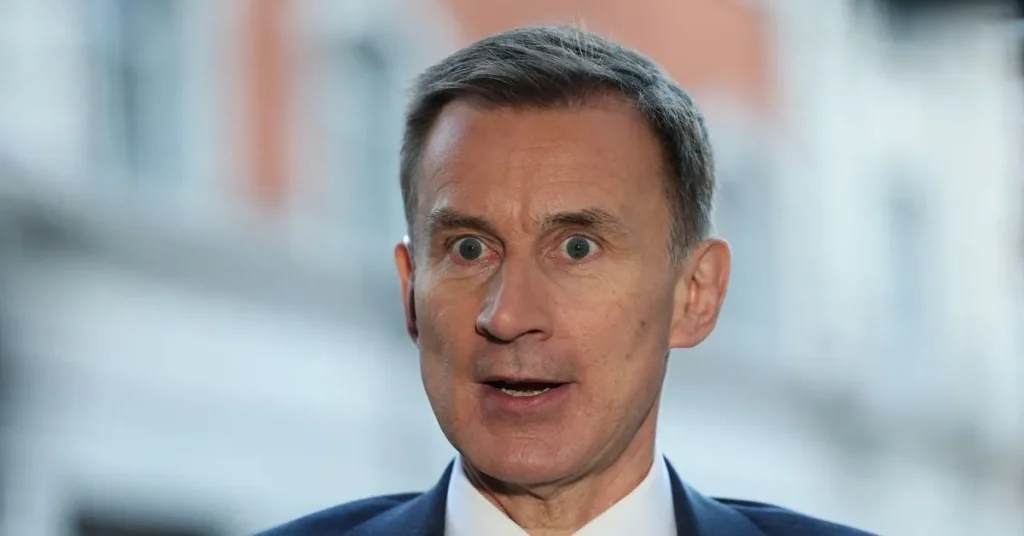A halving of UK government borrowing over the past year has created scope for Jeremy Hunt to make tax cuts worth about £20bn in his March budget.
Data from the Office for National Statistics showed that higher VAT and income tax receipts coupled with lower spending resulted in a deficit of £7.8bn in December 2023 – the lowest for the month since the pre-pandemic year of 2019.
Despite the smaller than expected December deficit, in the first nine months of the financial year the government borrowed just over £119bn – £11bn more than in the same period of 2022-23 and the fourth highest on record.
Hunt dropped a broad hint when he attended last week’s World Economic Forum in Davos that he was planning a package of tax cuts in his 6 March budget. With opinion polls suggesting the Conservatives are on course for a landslide defeat, the budget is seen as one of the government’s last hopes of changing the political climate.
Ruth Gregory, the deputy chief UK economist at the analysts Capital Economics, said that after nine months of the 2023-24 fiscal year, borrowing was on track to undershoot the OBR’s full-year borrowing forecast of £123.9bn by £5bn.
“What’s more, with market interest rate expectations and long-dated gilt yields having fallen since November, we suspect the OBR will revise down its borrowing forecast significantly from 2025/26,” she added.
Hunt’s scope to cut taxes is constrained by his rule that debt should be falling as a share of national income in five years’ time, but Gregory said the latest data showed the chancellor would meet this target with about £20bn to spare.


